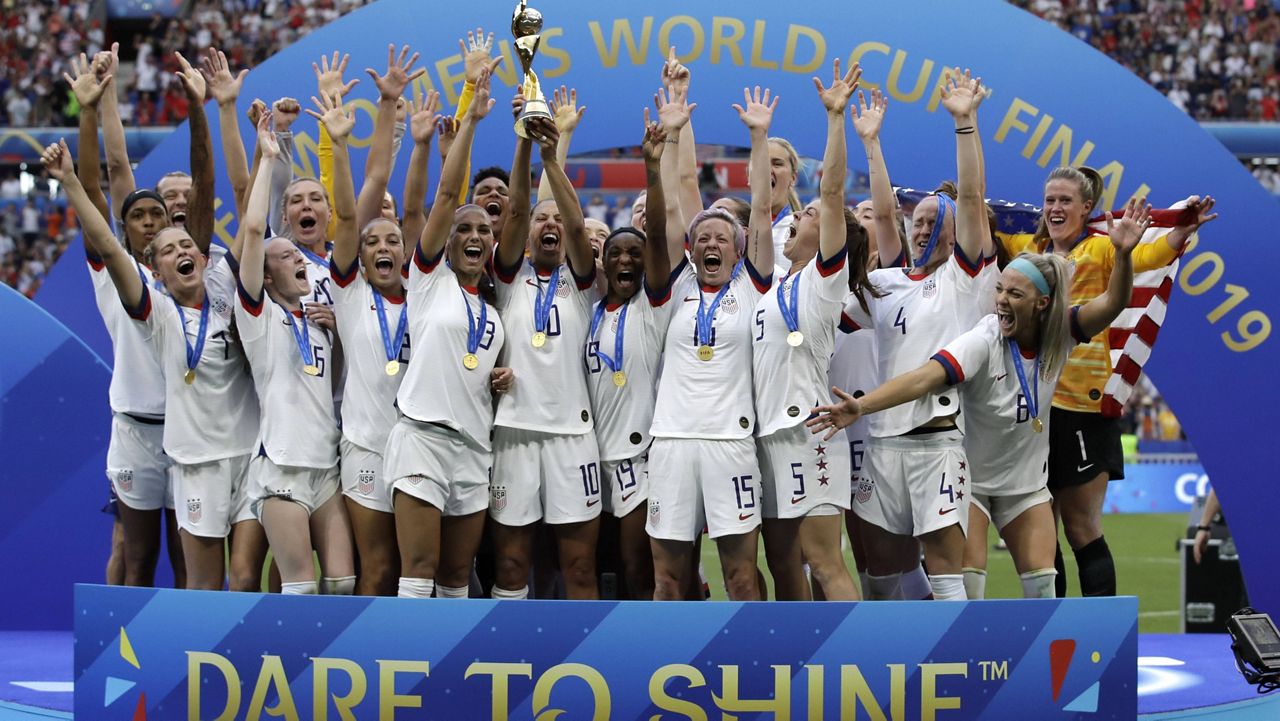U.S. women's national team players and the U.S. Soccer Federation have settled their long-running lawsuit over inequitable working conditions with the men's team while leaving their dispute over unequal pay for additional litigation.
What You Need To Know
- The U.S. women's national team players and U.S. Soccer Federation filed notice of the settlement in U.S. District Court in Los Angeles on Tuesday
- The settlement allows the players to appeal their claim that the men’s team is paid more, which a federal judge dismissed earlier this year
- As a result of the settlement, U.S. Soccer has agreed to equitable working conditions related to such things as travel, accommodations, venues, and staffing
- Players sued the USSF in March 2019
The parties filed a redacted public notice of the settlement with the federal court in Los Angeles on Tuesday while providing the complete agreement to U.S. District Judge R. Gary Klausner. The deal with the world champion American women and the sport's U.S. governing body calls for charter flights, hotel accommodations, venue selection, and professional staff support equitable to that of the men's national team.
Players sued the USSF in March 2019 claiming they have not been paid equitably under their collective bargaining agreement compared to what is received by the men’s team, which failed to qualify for the 2018 World Cup. The women asked for more than $66 million in damages under the Equal Pay Act and Title VII of the Civil Rights Act of 1964.
Klausner dismissed the pay claim in May, ruling the women rejected a pay-to-play structure like the men’s agreement and accepted greater base salaries and benefits.
But Klausner allowed aspects of their allegations of discriminatory working conditions to be put to trial. Those issues were settled, and players may now ask the 9th U.S. Circuit Court of Appeals to restore the wage claims.
“We are pleased that the USWNT players have fought for — and achieved — long overdue equal working conditions," players' spokeswoman Molly Levinson said. "We now intend to file our appeal to the court’s decision, which does not account for the central fact in this case that women players have been paid at lesser rates than men who do the same job.
"We remain as committed as ever to our work to achieve the equal pay that we legally deserve. Our focus is on the future and ensuring we leave the game a better place for the next generation of women who will play for this team and this country.”
Following the U.S. victory in last year's World Cup final in Lyon, France, the crowd chanted “Equal Pay!” as players celebrated on the field.
Then-presidential candidate Joe Biden posted to Twitter: “To @USWNT: don’t give up this fight. This is not over yet. To @ussoccer: equal pay, now. Or else when I’m president, you can go elsewhere for World Cup funding,” referring to the 2026 men’s World Cup, set to be co-hosted by the United States, Mexico, and Canada.
After the USSF argued in court documents that women lacked the skills and responsibilities of their male counterparts, sponsors criticized the federation. Federation President Carlos Cordeiro resigned in March and was replaced by former national team player Cindy Parlow Cone.
“We hope today’s positive step forward will result in the USWNT accepting our standing offer to discuss contract options," Cone said in a statement. “As a former USWNT player, I can promise you that I am committed to equality between the USWNT and USMNT. My goal is, and has always been, to come to a resolution on all equal pay matters and inspire a new era of collaboration, partnership and trust between the USWNT and the federation."
The federation has argued that unequal bonus structures are the result of vastly dissimilar bonus payments for men's and women's tournaments from FIFA, soccer's world governing body.
FIFA awarded $400 million in prize money for the 2018 men’s World Cup, including $38 million to champion France, and $30 million for last year’s Women’s World Cup, including $4 million to the U.S. after the Americans won their second straight title. FIFA increased the total to $440 million for the 2022 men’s World Cup and FIFA President Gianni Infantino has proposed FIFA double the women’s prize money to $60 million for 2023.



